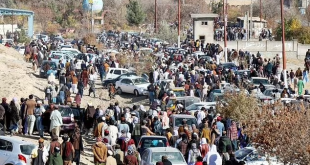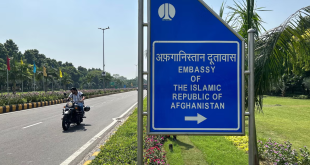Afghanistan’s young generation needs education now more than ever. Indoctrinating children in peaceful ideology, as well as patriotic sense to work for the development of the country, is something that would help salvage the situation of Afghanistan and thus reverse the effects of the war-like mindset on Afghan youngsters which had been evolving for 40 years (and counting). However, Afghanistan still suffers from illiteracy as according to Education Minister Mirwais Balkhi, around 3.7 million children, with 70 percent of them girls, are deprived of education across the country. In general, Afghan children don’t have sufficient access to proper education but in particular, girls are the ones mostly affected. In addition to that, a recent report conducted by Women and Children Legal Research Foundation (WCLRF) revealed challenges and opportunities concerning girls’ education. Based on the findings of the report, 49 percent of the girls interviewed who left school said insecurity was the main threat to them. Violence, impossibilities, harassment and forced marriages were cited as other reasons that compelled girls to abandon schools. Although insecurity is termed the greatest issue behind schoolgirl dropouts, the societal taboo on sending girls to school and lack of proper knowledge about pros and cons on the part of Afghan communities are some other key factors that need to be dealt with in order to increase the number of girls in schools.
Afghan communities at times reason that they don’t allow their girls to attend schools because of lack of female teachers. Besides, bad traditions, along with taboos, and making girls merely do household works are the real factors that force the girls to leave school. This is while teachers say long distances contribute to the dropouts. Solution to this problem is eradicating these bad traditions and taboos by changing people’s attitudes and perceptions about girls’ education. This can be done by encouraging parents through extensive and intensive public awareness campaigns – mainly with the help of Ulema, civil society activists and media – that girls’ education should not be stigmatized. They should be persuaded that if they don’t permit their girls to attend schools, where would female teachers and doctors come from? On the part of the Ministry of Education (MoE), it should step up efforts and pay serious heed in this regard. For resolving the issue of long distances barring girls from education, MoE should work on constructing more schools. Meanwhile, the issue of insecurity can only be solved with peace. It is advisable for the upcoming government, which is set to take office soon as preliminary presidential result are out, to concentrate its focus on working for achieving a sustainable peace. It’s because only peace would help increase education’s coverage, increase literacy and thus render Afghanistan a prosperous country in the future. All this can be done by educating girls because doing so is like sowing seeds for Afghanistan’s progress.
 Afghanistan Times
Afghanistan Times




